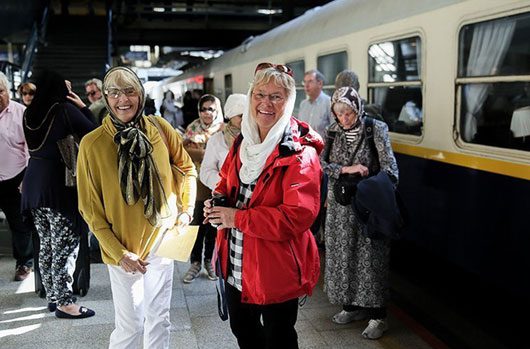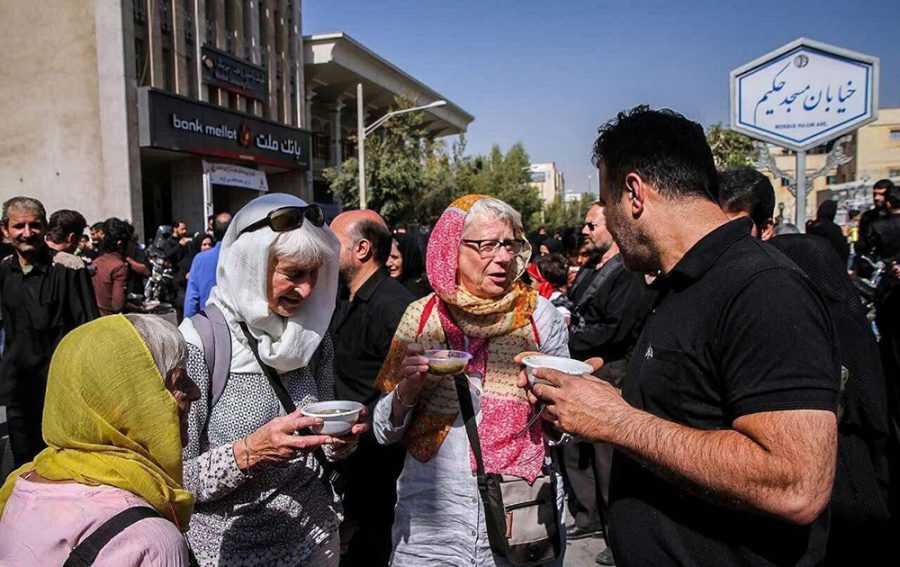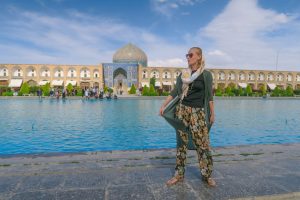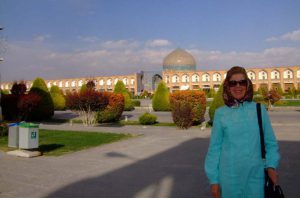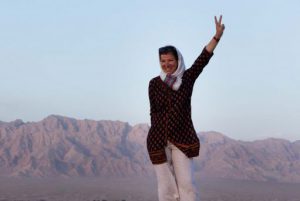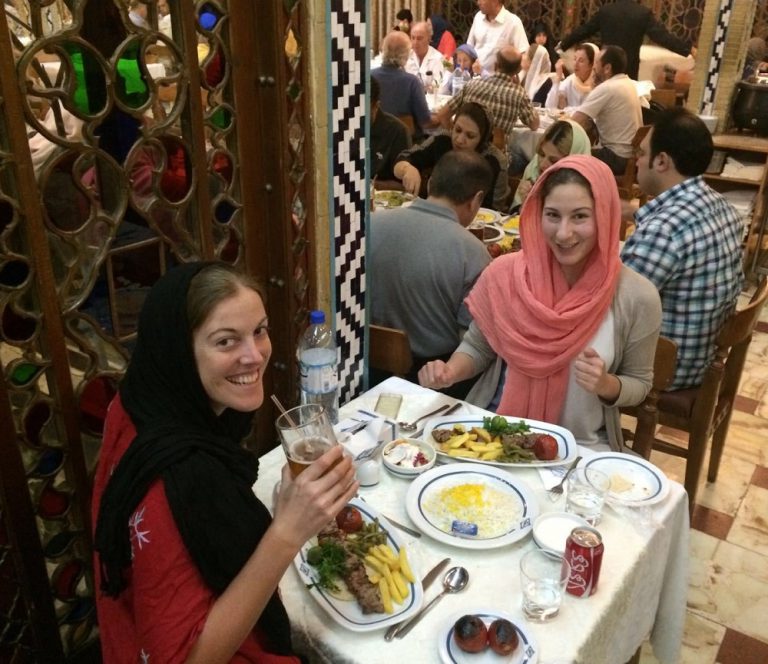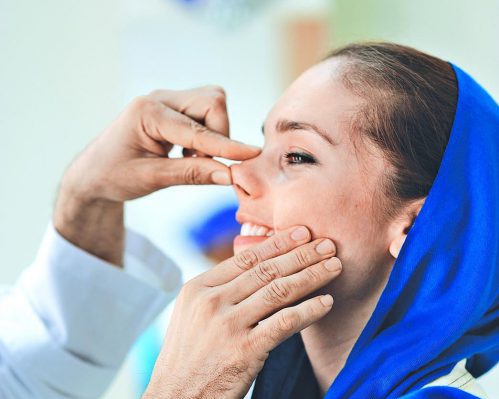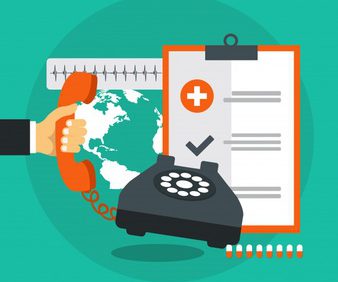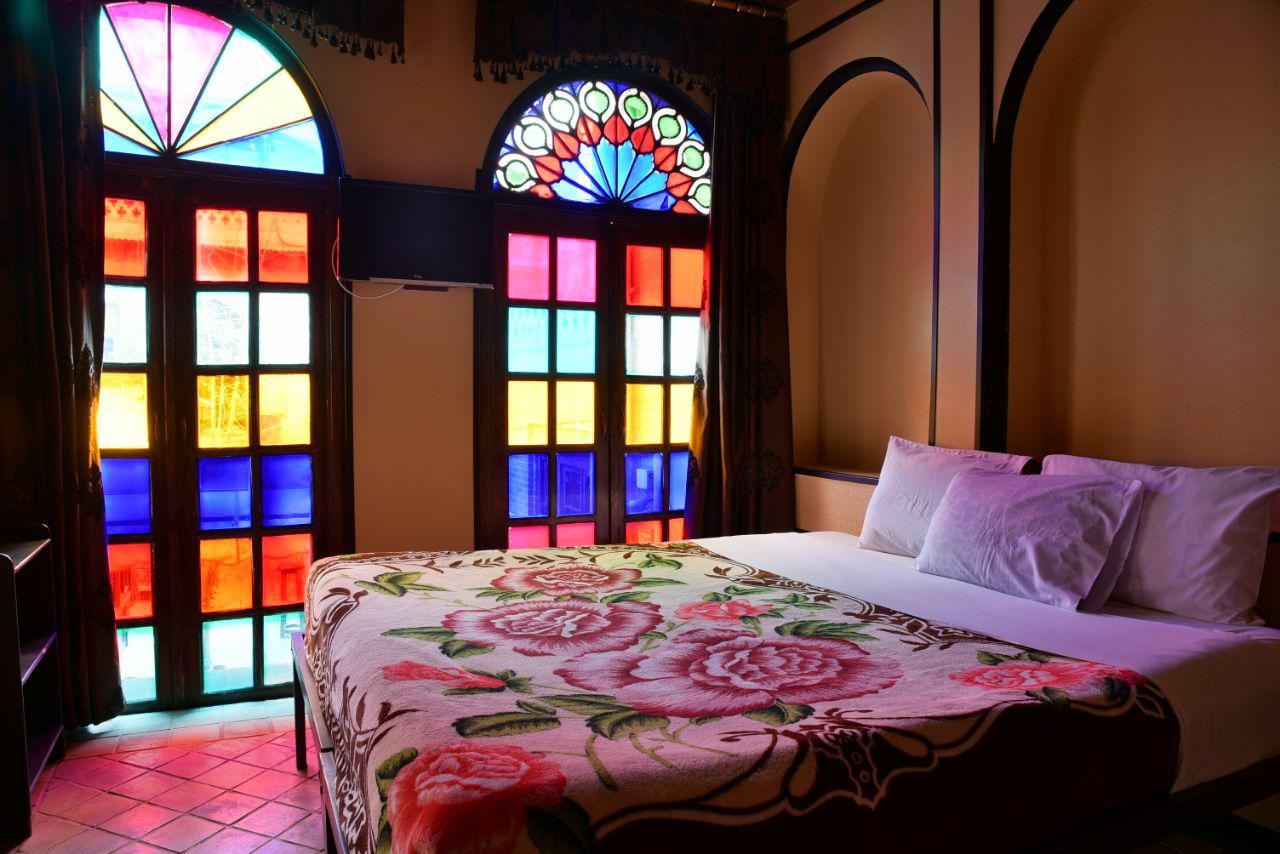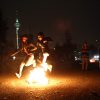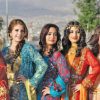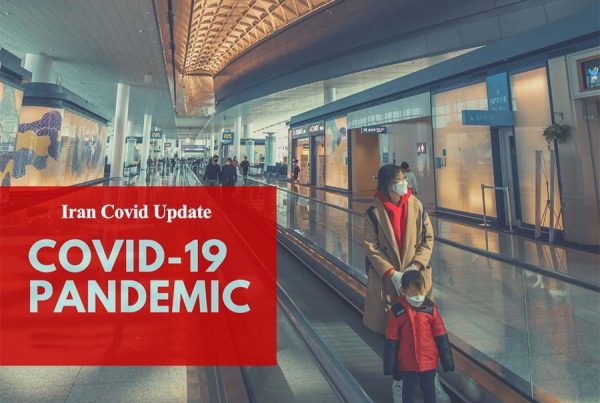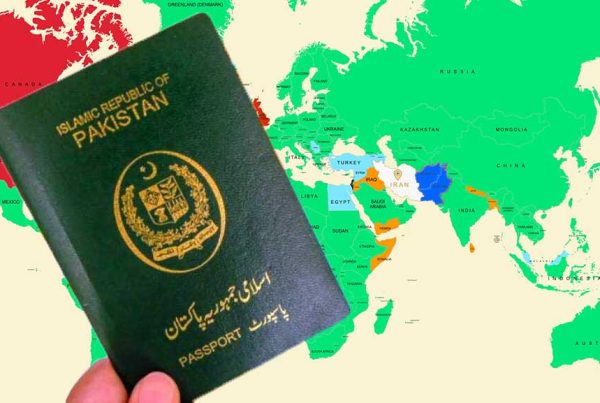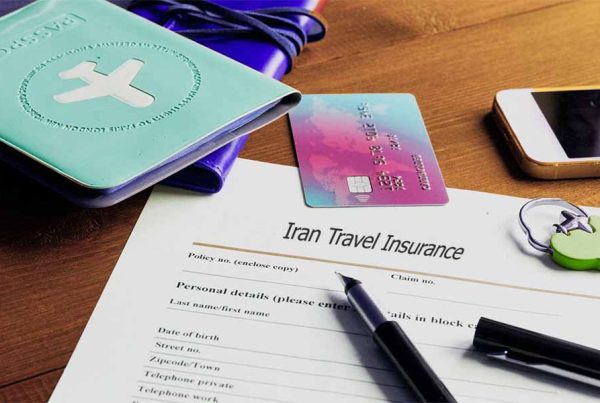Table of Contents
Is Iran Safe to Travel to ?
This is probably one of the most frequently asked questions for those who wish to travel to Iran. The truest, most unpretentious and least insidious answer to this question is absolutely yes, but don’t forget to consult your common sense when in trouble, as in any other country you’d travel to.
Is it safe to travel to Iran as a female solo traveler? What are the Do’s and Don’ts? Most people think that traveling to Iran is not safe, especially for women, and even confuse Iran with Iraq! While the media often tries to shape the image of Iran as an unsafe country, the reality of your experience in Iran will be something else. This is not to say you should leave vigilance and common sense at home while you travel in Iran, but what you should know for sure is that the Travel Risk Map by International SOS has recognized Iran just as dangerous as Canada, Australia and Europe!
Safety in General
The truth is that Iranians are Persian, boasting of a history of thousands of years old. They are mostly believers of Shi’a Islam, with tremendous amount of respect for religious and ethnic minorities living in the country. The country is governed by Islamic rules which require women to wear hijab, covering their hair and parts of their body. But this does not mean women are not at all safe in the country by any means.
Another reason attributable to the cause of the safety question is the fact that Iran is located in the Middle East, one of the most disputed and conflicted regions of the world. But you need to rest assured that none of the so called conflicts exist inside the country; in fact, Iran is not only the safest, but also one of the most developing countries of the Middle East.
Speaking of Middle East, while inside the country enjoys high levels of safety, the border areas especially near Afghanistan and Pakistan in the east and Iraq in the west have to be avoided.
Public Transportation
- The rate of petty crimes in Iran is low.
You may rarely hear about bag snatching or pick pocketing of a foreigner. However, watch out your belongings in public transportation and busy streets like you would do anywhere else in the world.
- Public transportation is safe and features women-only section.
Buses, taxies and subways frequently travel across the major cities, carrying thousands of the locals (if not millions in larger cities). Women and men use separate sections of the buses and subways, not because sexual discrimination but rather for a more comfortable experience. While these vehicles are safe, you must watch for pickpockets and in very rare cases harassers during the rush hours. There are women-only green taxies where the driver and passengers are all women.
- Tehran (the capital) metro is safe, fast, practical and flexible.
There are woman-only carriages at the front and rear of the train. However, it is also possible to stay with your male companions at the mixed section in the middle of the train, especially during rush hours. The metro is generally safe but you must beware of pickpockets and (in rare cases) harassers.
- Use Metro card and map in Tehran.
Try to buy a metro card so that you do not need to stand in a long line every time for a ticket. Besides this, although you can find the map of the metro installed inside the wagons, you should carry a Tehran Metro map or Tehran Metro app to navigate your way more easily.
- Sit at the back of the bus.
On intra-city buses, women usually sit on the rear chairs. You can use the second entrance to sit with other women. However, you can also sit with your male companion in front of the bus or stand in the area between the two sections.
- There is no separate section in taxis.
Going around the city with taxi is faster than the bus and there are no gender-specific limitations. However, in case you are sit next to a male stranger at the rear seats, try to keep your distance with him.
- Some taxi drivers exceed their speed limit.
Some taxi drivers may try to move as fast as possible, ask them to drive more slowly if you feel uncomfortable or uneasy.
- Use online city transportation apps in major cities.
Snapp and Tap30 are local versions of Uber. They are cheaper than the regular taxies and user-friendly. You can either pay in cash or pay online in Rials. Thankfully, they also have an English version.
- Don’t get in any car.
Taxies in Iran are mainly yellow or have a taxi sign either installed on the car or stuck to the door. Random cars, with no signs, also pick up passengers sometimes but as a traveler you’d better avoid them.
- The inter-city buses do specify a separate place for women.
You can sit next to your partner in any part of the bus. However, female solo travelers are not allowed to sit on the chairs of the first row or sit next to a male stranger. So if you are a solo female traveler (Iranian or foreigner) the driver will rearrange your seat for your comfort, whether you require it or not.
- Buses between cities are quite comfortable and safe.
Buses drivers have to observe their speed limit and security issues. However, try to use VIP buses, as they are more comfortable and modern.
- Roads between cities are almost quiet and free from traffic, except during the holidays.
The roads and highways in Iran are safe; however, as the rate of car accidents is almost high in Iran, it is suggested to use the buses, trains or flights between the cities.
Street Safety
- Walking on the street is safe in Iran.
Instances of sexual harassment or abduction toward foreigners are rarely heard of, especially in major cities like Tehran, Esfahan, and Shiraz. However, it is advisable not to be alone especially after 10 PM. It is better to go around with a group of travelers from your hotel or find a trustworthy local friend.
- Use your common sense in interacting with locals.
In public places, you may encounter some locals who would try to interact with you. Do not feel in danger or uncomfortable in the first place. It is exciting for Iranian people to see and accompany a foreigner. They may just want to practice their English, try to be helpful to you or even invite you to their houses. Simply, you can accept or reject their company and invitation politely.
- Be vigilant in case of harassment.
If you encounter any sort of verbal or physical harassment by a man, don’t pay attention in the first place. If he is persistent, simply move closer to a woman or go to the nearest shop until he gives up.
- Locals may stare without having bad intention.
When you walk in public places, you may feel that the local people stare or point to you. Do not feel disturbed by their behavior. It is mostly because they are genially curious about you as a foreigner and a solo female traveler without having a bad intention. Wearing sunglasses is also helpful in this case, to avoid inadvertent eye contact with strangers.
- Avoid physical contact with a male.
Any physical contact between a stranger man and woman such as handshaking, touching or patting on the back is restricted by Islamic law and unadvisable in Iran, unless with a man you know takes no issues with it.
- Call the police for security issues.
Call 110 or refer to the nearest tourist information station when you feel harassed or assaulted.
- Stay away from uncrowded areas at night.
In major cities, most shops and drugstores are closed after 10 P.M and the cities are almost empty, only some drugstores and restaurants may be open late into the night. Although the exact hour varies with every season, the rule of thumb is that you should avoid walking on the street especially in isolated or dark places or taking unofficial taxies after 10 P.M. In smaller cities, the streets are mostly empty when it gets dark and we strongly recommend you not to stay out unaccompanied for longer than that.
- Crossing the street may be daunting.
Always use crosswalks, even though they are often not respected by the drivers, or overpasses (be more careful taking the overpass at late hours). However, if you have to cross the street, watch the cars and motorcycles on both lanes even on the one-way streets, as you might run into a careless driver or biker or one heading the wrong direction.
- Watch careless scooters and cycles on the pavement.
Although you might stick to the pavement for more safety, you should be vigilant about negligent cyclers especially in less crowded pavements.
- Ignore annoying local drivers.
While waiting to cross the street or take a taxi, you may encounter some drivers who may try to catch your attention by horning. You can simply ignore them or step a little away to avoid them.
- Watch the traffic light.
Even when the traffic light is red, there might be a hasty driver who tries to pass the light. So we advise you to wait before you cross the street until the path is clear.
Iran Dress Code
Female travelers in Iran, better to know some the dress code of this country:
- Wear modestly.
Maybe this is the most challenging part of the trip for a foreign woman in Iran. It is determined by the religious authorities for women to wear modest clothes for their protection. Outside your hotel room and in public places, you need to cover your hair with a scarf and your body, to the arms and to the legs, with a loose dress or shirt and pants.
- Wear Chador (black veil) in religious sites.
In public places it is not necessary to wear chador or black veil and your hair does not need to be covered completely. However, in sacred placessuch as mosques and shrines, you should wear chador (most places, especially those visited by tourists provide chador).
- People are checked at the entrance to shrines for security issues.
In religious cities such as Qom and Mashhad, there are separate entrances for women and men. They are checked for security and a proper veil is delivered to women.
Eating and drinking
- Be prudent to accept or decline local’s invitation.
As Iranian people are very friendly and joyful, you may be invited by a group of women or a family to join them for the meal at their home or a restaurant. This usually leads to interesting experiences; however, accepting the invitation depends on your own judgement. But we don’t advise a man’s invitation to his home, unless a female relative is present.
- Steer clear from traditional teahouses.
It is not advisable for female solo travelers to go to a teahouse, as it is a place where only young men gather together to smoke or drink tea.
- Alcohol is illegal in Iran.
If you are invited to drink alcohol, it is better to decline the request, because if a person is caught with doses of alcohol in his or her body they are sentenced for harsh penalties. Besides that, there is no legal production company in Iran, so the alcohol product may have not been properly prepared or it might be dangerous for your health.
- Tap water is safe for drinking.
Tap water in almost all of Iran, except for the southern islands and cities located in arid regions, are drinkable. However, in case you do not feel safe drinking this water you can find bottled water in almost every supermarket.
Sanitation and Heath
- Take your personal hygiene items with yourself.
In public toilets, especially those in the parks or outside the cities, you may not find hand soap or washing liquid; therefore, it is a good idea to bring hand soap and sanitizer. It is also advisable to take tissues and wet wipes with yourself.
- Bring sanitary pad with you.
Sanitary pads are available in almost every drugstores and supermarket. However, if you wear tampons or have to wear a special brand, it is better to take it with yourself because in between city shops you can’t find them easily.
- Safe physical intercourse
Primary tools of health and hygiene can be found in any drugstore in Iran. For having safe physical intercourse, you can purchase condoms as well as pills, if necessary, at the drugstores.
- Iranian major cities have professional medical facilities.
In case of emergency, if you need the help of a doctor or physician, you can go to one of the medical facilities and hospitals in the major cities. They are pretty much safe and trustworthy.
Beauty and surgery
- Fancy a nose job in Iran? Go for it!
You can find very famous beauty surgeons in Tehran and Isfahan who perform different kinds of cosmetic surgeries. These surgeries are relatively cheaper compared to other places in the worlds and pretty much successful.
- Take care of your beauty in Iran.
Iranian women pay a great amount of attention to fashion and beauty. You can find really good beauty salons who provide all kinds of services for a reasonable price.
Emergency phone calls
Whether you are a solo traveler or traveling as a group, it is very important to know about emergency phone numbers of a specific country. Most of the emergency phone numbers in Iran are applicable without dialing a pre-code or having enough credit. Here is a list of the necessary phone numbers:
-
- 110 – police station;
- 125 – fire station;
- 115 – for medical issues;
- 118 – for acquiring phone numbers such as tourist attractions, museums, hotels, restaurants, transportation, and etc.;
- 133 – inter-city transportation (you should have enough credit on your phone);
- 134 – weather information;
- 139 – train station center (you should have enough credit on your phone);
- 191 – boarding pharmacy;
- 119 – date and time information;
- 3333333 – city information (you should have enough credit on your phone)
Police
One of the reasons for the safety of Iran is the strong presence of the police and street patrols. If you get lost in the city, lose your passport or feel unsafe for whatever reason, you can approach the small police station booths located across the city, main police stations or contact 110 (the phone number for the local police stations everywhere in the country).
Female Police
In addition to male police officers, there are also female police officers in Iran. You can find them in the police booths across the city or at the police stations.
Accommodation
Generally speaking, finding a place to stay in Iran is really easy for the abundance of different types of accommodation in the country.
Generally speaking, we recommend visitors to stay at hotels, hostels or officially licensed local houses. At hostels, an Iranian man is not allowed to stay in the same room with a foreign woman, unless they are married. For foreign men and women, however, there are no limitations for a foreign single man and woman to stay in the same room. As for the hostels, most of them have women-only and men-only rooms; however, some of the hostels also have mixed rooms. You can book hostel rooms on online booking websites.
International online hospitality services of Airbnb are not supported in Iran. Most travelers choose couch surfing as an alternative. However, we should notify you that couch surfing is not considered as an official hospitality service in Iran; as such, travel insurances do not cover your stay in such residences. Therefore, you cannot have any claims about accidents of any sorts that may happen during your stay at these houses.
For the most incredible experience of staying in Iran, we recommend the local houses and eco-lodges which have been renovated and designed in a way that visitors feel comfortable in their experience of living like a local in Iran.
By knowing these guides and tips, as solo female travelers, you will be safe in Iran.




